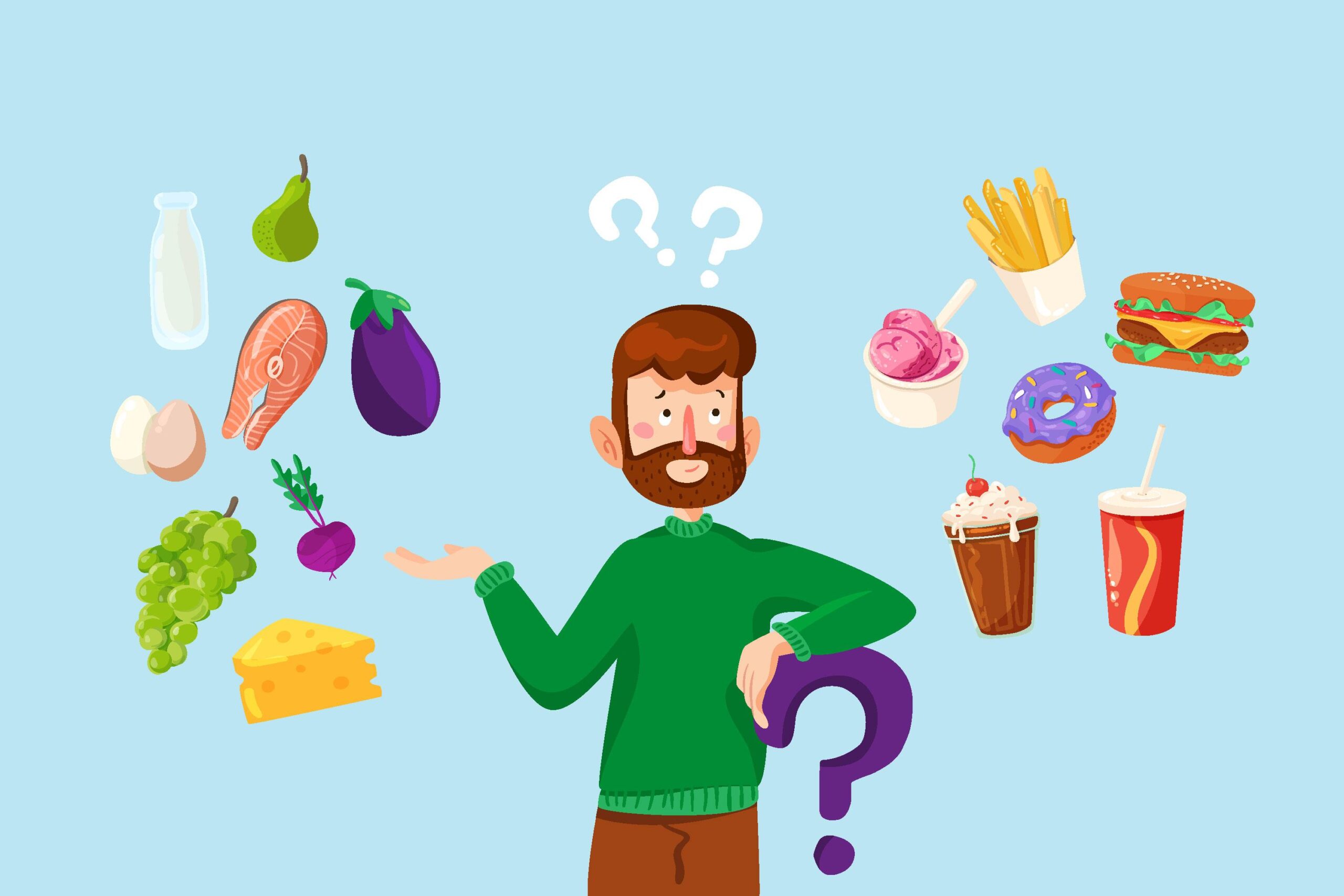With the abundance of health information online, it’s easy to fall prey to food myths that often lead to confusion. Many widely believed “facts” about food are rooted in misunderstanding or outdated science. Let’s clear the air by busting some of the most common food myths and misconceptions with evidence-backed explanations.
1. Myth: Eating Fat Makes You Fat
Reality: Not all fats are bad for your health or your waistline. Healthy fats, like those found in avocados, nuts, seeds, and olive oil, are essential for energy, hormone regulation, and nutrient absorption. Excess refined carbs, sugar, and calories—not healthy fats are the real culprits of weight gain.
- Tip: Incorporate healthy fats in moderation to maintain a balanced diet and keep your metabolism functioning optimally.
2. Myth: All Carbs Are Bad
Reality: Carbohydrates are a vital source of energy, and not all carbs are created equal. Whole, unprocessed carbs like oats, quinoa, fruits, and vegetables are packed with nutrients and fiber, which aid digestion and keep you full. It’s the refined carbs, like sugary snacks and white bread, that should be limited.
- Tip: Opt for complex carbs and pair them with protein or healthy fats for sustained energy.
3. Myth: Skipping Breakfast Helps You Lose Weight
Reality: Skipping breakfast may save calories initially, but it can lead to overeating later in the day due to increased hunger. Studies suggest that eating a nutrient-rich breakfast can boost metabolism and help control cravings throughout the day.
- Tip: Start your day with a balanced breakfast that includes protein, healthy fats, and whole grains for optimal energy and focus.
4. Myth: Fresh Produce Is Always Healthier Than Frozen
Reality: Frozen fruits and vegetables are often flash-frozen at their peak ripeness, preserving their nutrients. Fresh produce may lose some of its nutrients during transportation and storage. Both fresh and frozen options can be healthy, depending on their preparation.
- Tip: Use frozen produce for convenience and freshness, especially when certain fruits or veggies are out of season.
5. Myth: Detox Diets Are Essential for Cleansing
Reality: Your body is equipped with its own natural detoxification systems—your liver and kidneys. Most detox diets and cleanses lack scientific evidence and may deprive your body of essential nutrients.
- Tip: Focus on eating a balanced diet rich in whole foods, drinking water, and avoiding excess processed foods to support your body’s natural detox processes.
6. Myth: Eating After 8 PM Causes Weight Gain
Reality: Weight gain is not determined by the time you eat but by the total number of calories consumed versus burned throughout the day. Late-night eating often leads to unhealthy snacking, which is the actual issue.
- Tip: If you’re hungry at night, opt for a light snack that’s high in protein or fiber to avoid overeating.
7. Myth: Gluten-Free Foods Are Always Healthier
Reality: Unless you have celiac disease or gluten sensitivity, there’s no inherent benefit to eating gluten-free. Many gluten-free products are highly processed and contain added sugars or unhealthy fats.
- Tip: Choose whole, naturally gluten-free foods like vegetables, fruits, and rice rather than processed alternatives.
8. Myth: Microwaving Food Destroys Nutrients
Reality: Microwaving is one of the most nutrient-preserving cooking methods. Since it requires little to no water and shorter cooking times, it can help retain the vitamins and minerals in food better than boiling or frying.
- Tip: Use microwaving as a quick and efficient way to prepare nutrient-rich meals.
Also Read: 90% of People Make These Mistakes While Eating Yogurt!







Leave a Reply